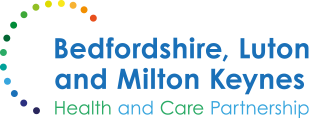Autism Spectrum Disorder (ASD)
Having autism means that the person has a different way of understanding other people and the world around them. Autism is a lifelong developmental disorder, not an illness or a disease so there is no ‘cure’ but there are many ways that difficulties can be managed.
It is important to know that ASD is a wide spectrum and children/young people diagnosed with ASD can have varying traits. In social interactions this may be particularly noticeable where one child may prefer to be on their own whilst another may be over friendly; some children may have learning difficulties/developmental delays, whilst others not.
People who have autism may:
- find it hard to communicate and interact with other people
- find it hard to understand how other people think or feel
- find things like bright lights or loud noises overwhelming, stressful or uncomfortable
- get anxious or upset about unfamiliar situations and social events
- take longer to understand information
- do or think the same things over and over
Some of the differences you might notice
Signs of autism in young children include:
- not responding to their name
- avoiding eye contact
- not smiling when you smile at them
- getting very upset if they do not like a certain taste, smell or sound
- repetitive movements, such as flapping their hands, flicking their fingers or rocking their body
- not talking as much as other children
- repeating the same phrases
- autism in older children
Signs of autism in older children include:
- not seeming to understand what others are thinking or feeling
- finding it hard to say how they feel
- liking a strict daily routine and getting very upset if it changes
- having a very keen interest in certain subjects or activities
- getting very upset if you ask them to do something
- finding it hard to make friends or preferring to be on their own
- taking things very literally – for example, they may not understand phrases like "break a leg"
Where to get support
National Autistic Society
For parents of autistic children, young autistic people and autistic adults.
- Website: www.autism.org.uk
Ambitious about Autism
For autistic children and young people, their parents and carers.
- Call: 020 8815 5444
- E-mail: info@ambitiousaboutautism.org.uk
- Website: www.ambitiousaboutautism.org.uk
The Local Offer
The Local Offer is a way of giving children and young people with special educational needs and/or disabilities (SEND) and their parents or carers information about what activities and support are available in the area where they live.
The Council for Disabled Children (CDC) have produced a video which provides information about what a Local Offer is.
The Local Offer contains information for children, young people and families, and for adults. It brings together helpful and useful information located in one easily searchable website which is accessible through smart phones and tablets.
The Local Offer contains a wide range of information and services to support children and young people with special educational needs or disabilities. These include services provided by the Local Authority and the health service, as well as services provided by the voluntary and private sectors (e.g. charities and disability groups, nurseries, youth clubs, leisure activities etc.).
Information is available for young adults, to help you make informed choices about things that are important to you such as where to live; transport; social activities, work and training; and becoming an adult.
Bedford Borough: Bedford Local Offer
Central Bedford: Central Bedfordshire SEND Local Offer
Luton: Luton’s Local Offer SEND information hub | Luton Directory
Milton Keynes: Special Educational Needs and Disabilities (SEND) local offer | Milton Keynes City Council (milton-keynes.gov.uk)



